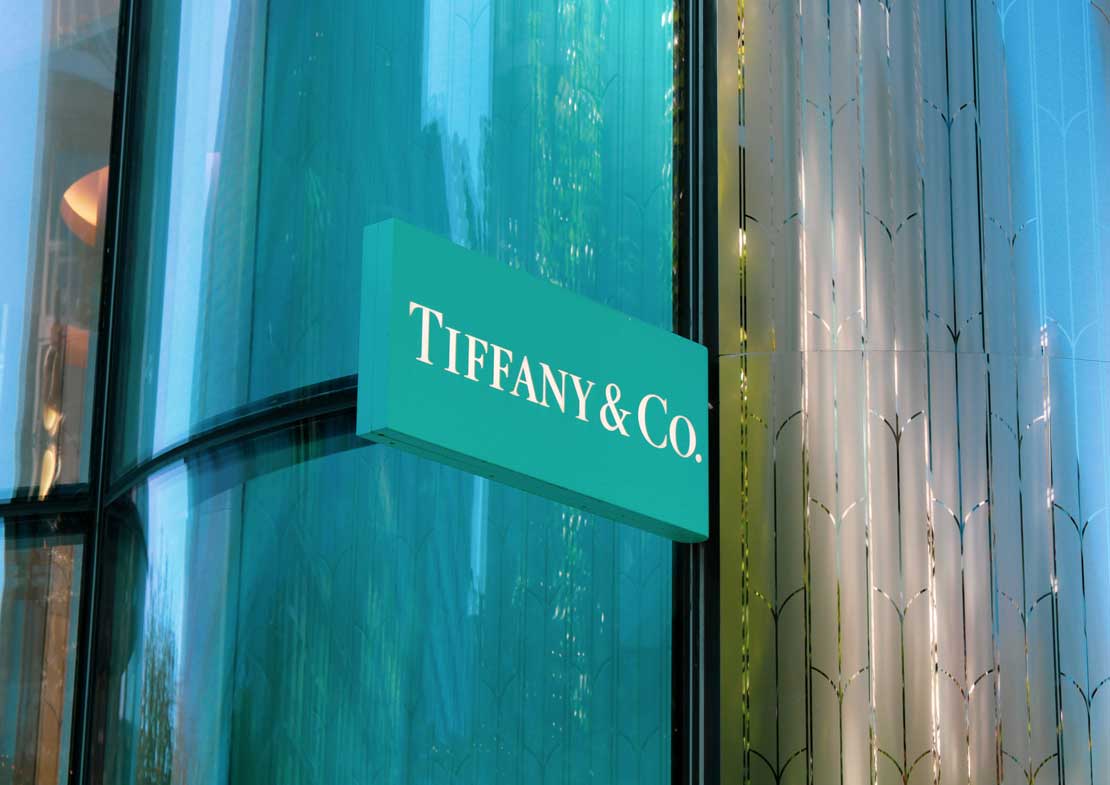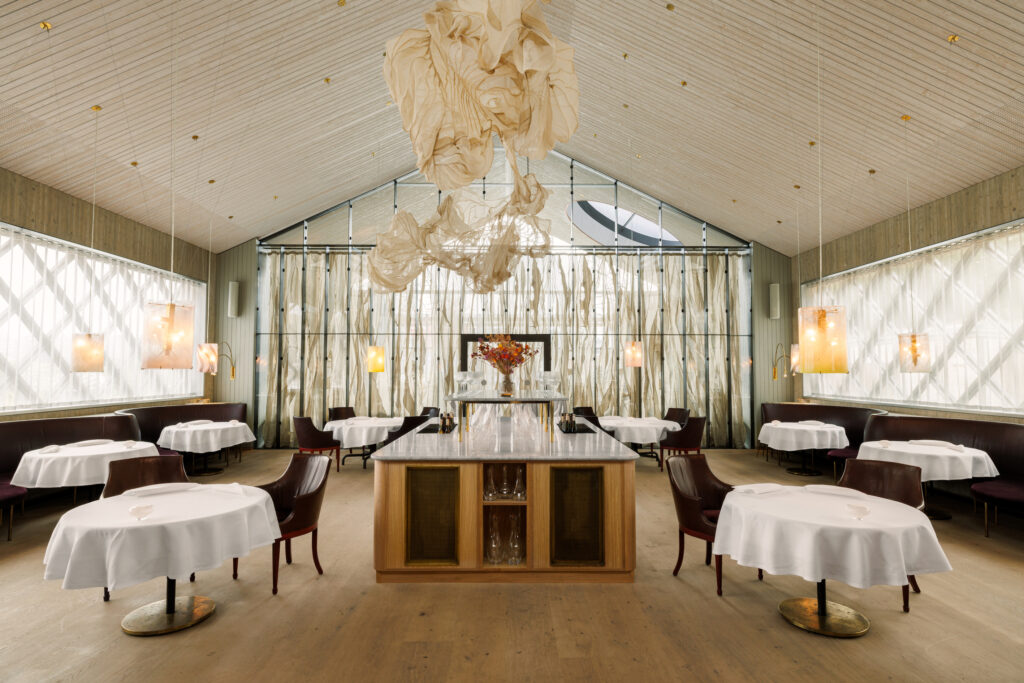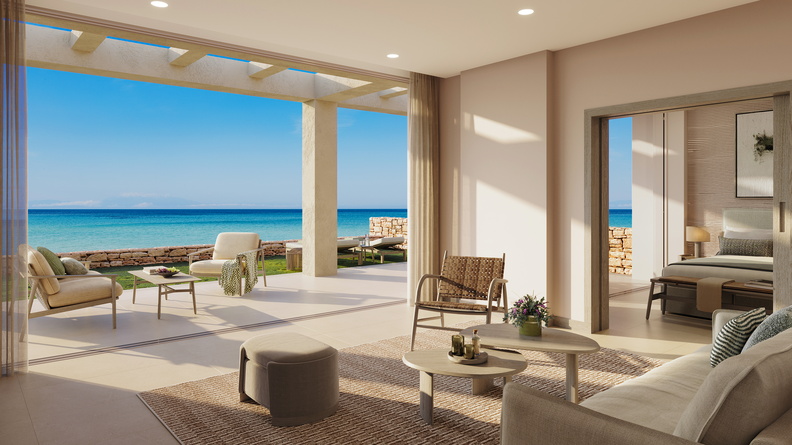In the dynamic world of luxury retail, where brands strive to create unparalleled experiences for their clientele, there exists a realm often overlooked by the public eye. Behind the glamour of flagship stores and iconic brands lies a crucial yet discreet sector – retail development.
To delve deeper into this phenomenon, I had the pleasure to talk with Rosetta Borgia, a luminary in this domain, whose expertise serves as a guiding example, navigating brands towards new heights of excellence in customer experience and retail innovation. She recently delivered a new lecture to the students of the MSc in Luxury Management at the International University of Monaco (IUM), and Rosetta kindly agreed to share her insights, shedding light on the latest trends and developments in luxury retail.
I have the privilege of knowing Rosetta Borgia from the days when we navigated the luxury corporate landscape together, strategizing the expansion of retail networks and bringing new stores to life for a major Italian luxury brand. Now, a renown international senior executive with an illustrious tenure at Kering, LVMH, Apple, and Starbucks Roasteries, Rosetta paints a picture of a career dedicated to shaping the physical manifestations of luxury brands. Her latest triumph at the Samaritaine historical department store in Paris stands as a testament to her mastery in revitalizing iconic retail spaces.
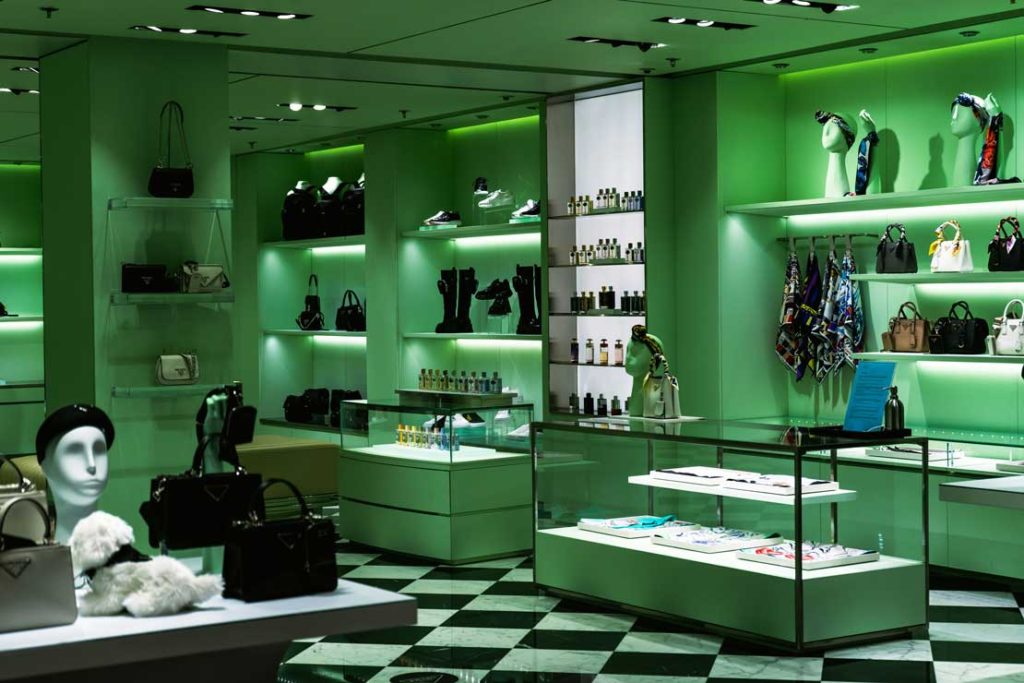
Luxury Store Development: from passion to constraints.
The dialogue with Rosetta offers an engaging insight into the complexities of store development. For luxury brands, ensuring a customer experience that is in harmony with the essence of the brand is crucial. Equally captivating is the exploration of how consumer preferences influence every aspect of store conception, design, and execution. Her role is known only to a small group of luxury professionals, as her work takes place mainly behind the scenes. In the field of luxury building design and construction, her mission is to enable brands to manifest their grandest visions, transforming abstract designs into tangible realities. Collaborating with esteemed architects and interior designers, the goal is to push the limits of creative theory, achieve excellence, secure international awards, and recognition, and skillfully navigate the often-conflicting priorities of quality, time, and budget. From orchestrating financial planning of multimillion dollar retail expansion, to overseeing architect selection and construction execution, she navigates complex corporate dynamics to bring the brands’ values into immersive physical spaces. Despite often remaining in the shadows, retail developers serve as the driving force behind iconic retail experiences, ensuring seamless execution and unparalleled quality, placing affluent clientele focus on the forefront of their endeavors.
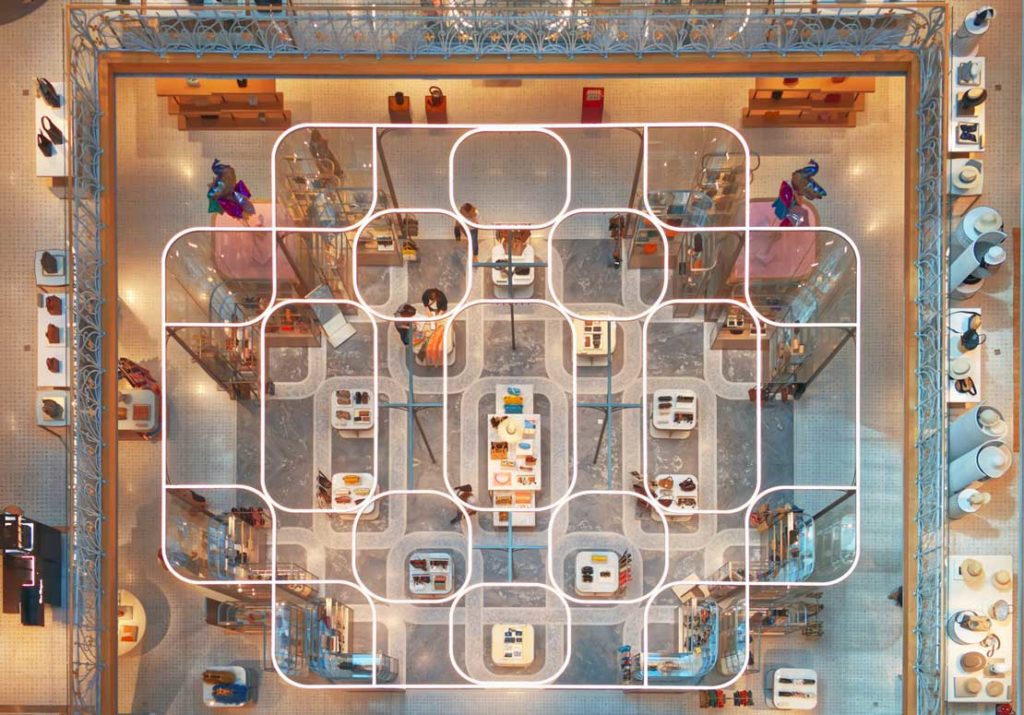
The Significance of an International Journey
Her expertise is based not only on a deep passion for architecture, but also on a long career path that has spanned the globe, from Italy to long stints in London, followed by Hong Kong and, currently, New York. The United States is a story of desire and professional promise. Her infatuation with New York dates to her time at Fendi, where the seeds of her desire to fully embrace the dynamic essence of the city were sown. The United States represents fertile ground for innovation, but it is currently struggling with a talent shortage, exacerbated by a growing skills gap. Recent reports by McKinsey and Bain highlight the transformation of the mature U.S. retail sector. Compared to the luxury landscape in Europe and Asia, it offers unparalleled opportunities for growth and innovation. Reflecting on her unique position in the realm of luxury retail, Rosetta highlights her extensive international experience is a rarity among senior executives in the vast landscape of the United States. With most luxury brands originating and being headquartered in Europe, the US can sometimes feel like a distant outpost to them. Rosetta sees her mission as bridging this geographical gap by infusing retail development with a global perspective and offering profound insights into international clientele for luxury brands deeply entrenched in the US market.
From consumers’ trends to business strategies.
The conversation naturally shifts to broader current industry trends. With her international background and global perspective, she can shed light on the current dynamics shaping the luxury retail landscape. In recent years, there has been a growing focus on effectively engaging and communicating with ultra-high net worth individuals, prompting a strategic shift towards comprehensively understanding their needs, ensuring mutually beneficial exchanges, and delivering substantial value to them. These challenges have prompted the emergence of the experiential luxury, a strategic paradigm aimed at captivating the attention of Very Important Clients (VIC), whose time is both precious and fleeting.
In this changed context, luxury brands are crossing traditional boundaries to become providers of a diffused lifestyle experience and immersive environment, able to evoke tangible emotions and forge lasting connections. The value of exclusivity has been redefined across myriad touchpoints between the brand and the clients, manifesting in fully branded hotels, residential properties, and cafés that serve as sanctuaries of refinement and sophistication. From the opulent Bulgari hotel in Milan, to the Prada Caffé at Harrods, and the Tiffany & Co. Blue Box Cafe format, luxury fashion and jewelry brands are transforming their spaces into immersive havens that beckon VICs to unwind and indulge.
Cartier epitomizes this paradigm shift with its La Residence concept, an exclusive and secluded space within its stores, where VICs can lounge, be catered, bring family, meet friends, while perusing the brand’s offerings.
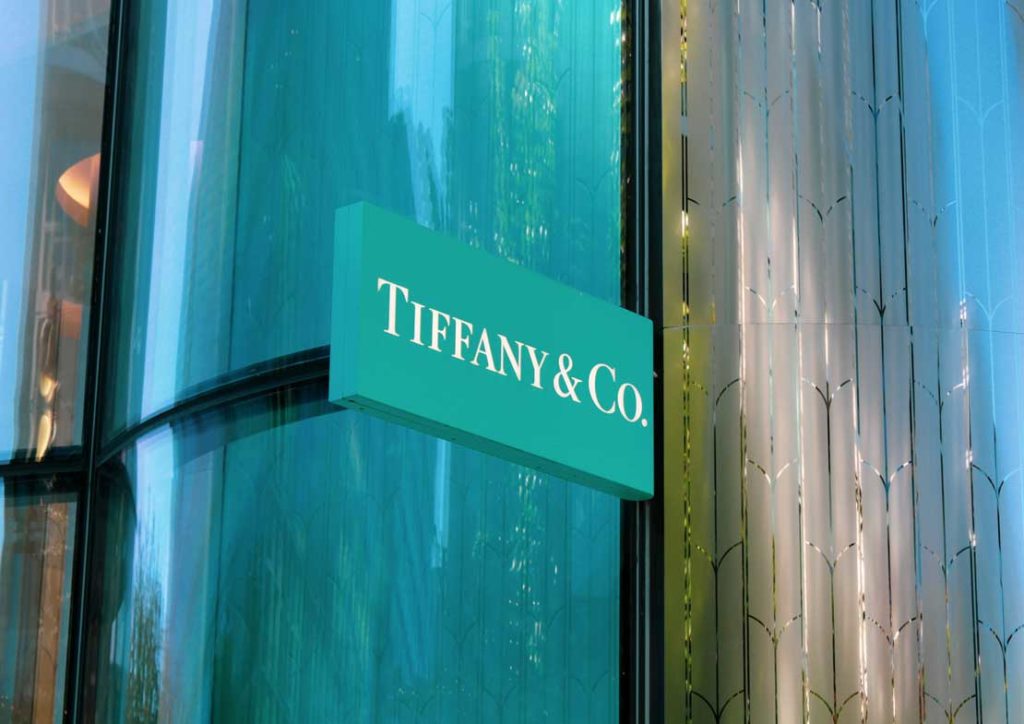
Leading brands have embraced the holistic experience concept to such an extent that, if an overnight stay cannot be directly accommodated within their own spaces, they will forge partnerships with luxury hospitality groups to seamlessly integrate it into the comprehensive 360 hosting journey.
Within the luxury boutiques spaces, two distinct trends are reshaping the retail landscape: the emergence of VIC lounges or apartments, and the seamless integration of physical and digital realms to create a truly omnichannel experience.
The emergence of VIC lounges or apartments.
For years we have heard predictions that physical retail stores were destined to downsize and eventually vanish. The recent announcement of Macy’s closing 150 stores in the North-East US seems to validate this forecast, particularly for non-premium and non-luxury retail brands. However, this narrative doesn’t hold true for luxury brands. The process of purchasing luxury goods resembles that of making an investment. Luxury items carry heavy price tags comparable to properties or cars, necessitating a time and a place to justify such significant expenditures. This immersive experience goes beyond mere online product viewing. It’s about building on the brand’s values and culture, evolving their stores to cater to VIP customers, emphasizing intimacy, local relevance, product manufacturing experience that resonate with and foster loyalty. Within their physical stores, luxury brands have the opportunity to cultivate robust connections with their clientele, offering engaging in-person experiences to supplement other sales channels. A store provides therefore a chance to foster a sense of community and enhance brand loyalty.
This evolution requires larger spaces that transcend traditional retail environments, transforming a selling space into VIC havens that embody the very essence of the brand. These spaces offer unique initiatives, sometimes even hosting events for client’s friends and family or collaborating with top hospitality brands to cater to internationally traveling clients.
In the world of retail marketing, it is well-studied that luxury brands often employ the concept of empty space in their stores, a key element in luxury retail design. In locations where every square meter is valuable, particularly in high-rent areas, the strategic use of empty space holds significant importance for luxury fashion establishments. This concept serves multiple crucial functions in crafting a luxurious and immersive shopping experience. Empty space contributes to enhanced visual appeal, emphasizes the importance of showcased products, exudes a sense of luxury and sophistication, and, above all, provides opportunities for the incorporation of experiential elements. It’s all about going above and beyond to create unforgettable moments that keep customers coming back for more.
Integrating physical and digital realms
Another significant trend is the integration between e-commerce and physical stores, leveraging digital tools to enhance in-store experiences and drive engagement. Whereas in the past, online integration was limited to providing tablets to browse products during a store visit, luxury brands are now leveraging digital tools to seamlessly enhance in-store experiences and connect online and offline experiences. From artificial intelligence-enabled storefronts and interior walls to virtual fitting rooms and magic mirrors, to ways to recognize and greet a returning customer enrolled in a loyalty program, these innovations bridge the gap between online browsing from home and in-store exploration and sales finalization.
Unlike previous generations, the prevalence of online marketing has empowered luxury consumers to utilize the internet as a resource for comparing similar products and services, resulting in more convenient shopping experiences. For luxury brands, this shift represents an opportunity to adopt a comprehensive strategy aimed at capturing the customer’s attention and loyalty even before they set foot in a physical store. This holistic approach prioritizes winning over the customer’s mindset through effective online engagement, thereby laying the groundwork for a successful in-store experience. Stores are no longer measured by sales data alone; customer engagement metrics, such as likes and social media interactions, play a key role. As the retail landscape continues to shift and change, premium brands are in an exciting phase of experimentation. With luxury groups poised to join the challenge, I foresee a seismic shift in the retail experience in the coming years.
Both these trends underscore how the luxury brands are becoming experience providers, where the acquisition of products becomes inseparable from the cultivation of memorable moments. The experience becomes the ultimate luxury — one that transcends the material and resonates deeply with the soul.
Inspiring the next generation of luxury leaders.
At the conclusion of our discussion, I conveyed my admiration for Rosetta’s dedication to fostering the next generation of talent. As an educator, I value the opportunity to provide my students with enriching guest lectures. I was curious about the motivations driving a professional of her caliber to invest time in educational initiatives, such as delivering lectures at esteemed institutions like IUM, Harvard Business School, Istituto Marangoni, and the London College of Fashion.
Rosetta shared her belief in the importance of increasing awareness of niche roles like hers within the broader luxury industry. She underscored the multifaceted nature of retail development, which intersects with various business functions including Merchandising, Finance, Operations, Visual Merchandising, and Retail Excellence. Rosetta emphasized the pivotal role of retail development in shaping brand narratives and enhancing the customer experience.
Recognizing that students enrolled in Master programs in Luxury, such as those at the International University of Monaco, will emerge as future industry leaders, Rosetta views her involvement as not only a passion but also a duty. She believes it’s critical to offer students insight into the real challenges they will face in their future careers. Equally important is inspiring the next generation of luxury leaders, contributing to the development and the success of the ever-evolving and highly competitive luxury industry.

